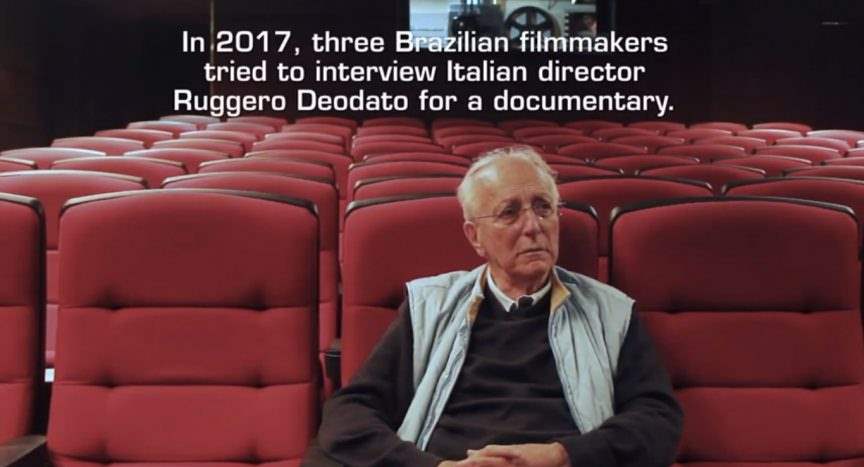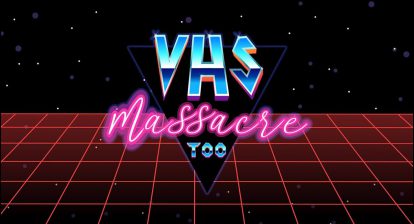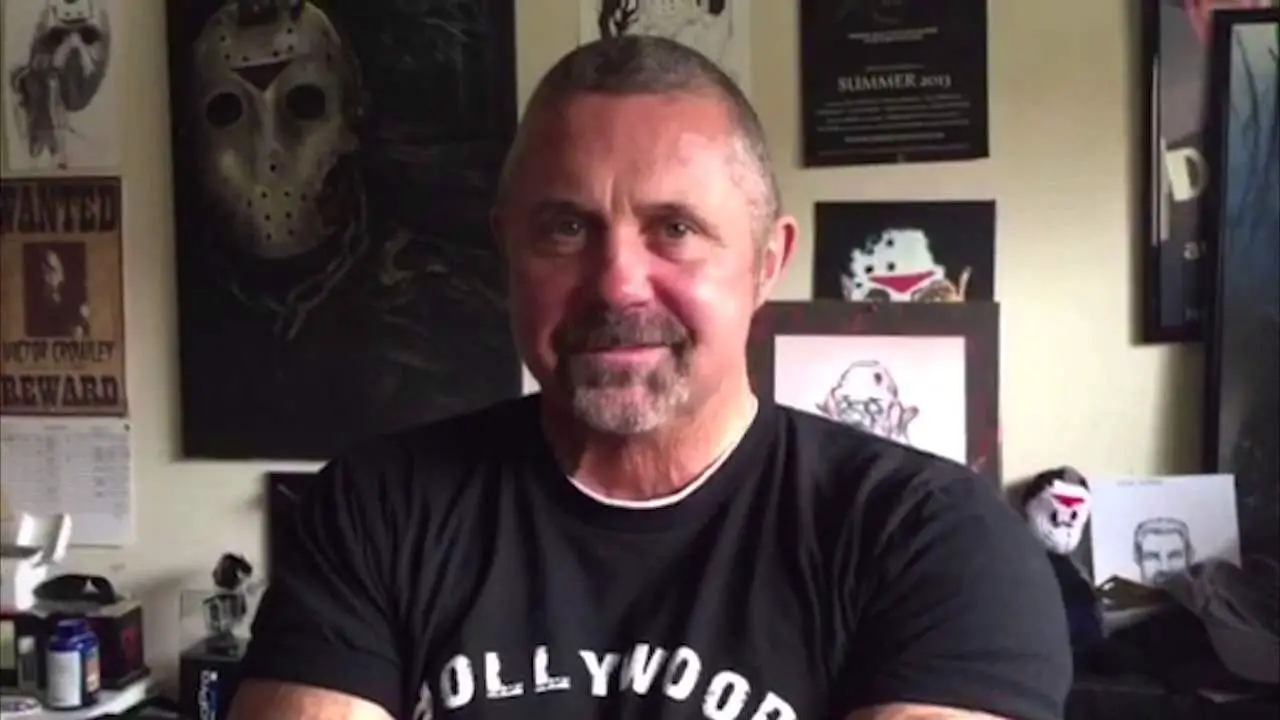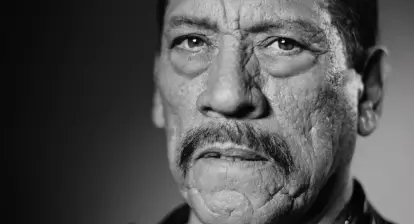There’s a scene very early on in Felipe M. Guerra’s Deodato Holocaust in which the cult favorite director behind movies like House on the Edge of the Park and Live Like a Cop, Die Like a Man gleefully sings a ballad, culminating with the chorus — or is it punchline? — “if there’s nothing better to do, go make a movie with Deodato.”
The self-deprecating song and dance is a moment of both humor and frustration. After 60 years in the film industry, Ruggero Deodato has certainly earned the right to have his praises sung — even if he’s the one literally singing said praises.
Now 80, Ruggero Deodato will almost certainly be remembered as the man behind Cannibal Holocaust, the immortal, hyper-controversial 1980 anthropophagus masterpiece. Unfortunately, he probably won’t get his due respect as a multifaceted, multitalented auteur who helmed scores of exploitation classics for half a century — a potential crime against cinema this standout Fantaspoa 2019 selection looks to rectify.
Whereas many horror-centric documentaries tend to focus on the product rather than the producer, the filmmakers behind Deodato Holocaust wisely sought to give viewers a comprehensive look at the career of the Italian B-movie kingpin — from his humble beginnings growing up in a monarchist-loyalist family in post-World War II Italy to his stint as an assistant director for Roberto Rossellini to his big breakthrough directing 1969’s Hercules: Prisoner of Evil all the way up to his fame (and infamy) as one of the world’s foremost degenerate cinema magnates to his two-decade-long retreat into family-friendly television(!) and advertising work to his big comeback flick Ballad in Blood in 2016. Sure, you might be here to mostly get the skinny on the filming of Cannibal Holocaust, but you’ll definitely be entertained by Deodato’s amusing anecdotes on obscurer stuff like Garibaldi (for extra realism, they hired rivaling city gangs that were more than willing to stab each other on camera for real) and his allegations that the producers of The Concorde … Airport ‘79 tried to literally steal and destroy his print of Concorde Affaire ‘79 to beat them to the box office.
Of course, the anchor point of the documentary is indeed Cannibal Holocaust. Here, Deodato explains how the film — and it’s lesser-known predecessor, Last Cannibal World from 1977 — were both inspired by the work of Mondo Cane and Africa Addio director Gualtiero Jacopetti and National Geographic … so much so that certain shots in both films were near-perfect replications of photographs from the esteemed magazine. Deodato says he considered the film to be one big joke at the time of its filming, although going through a divorce, he does acknowledge he was “a little furious” heading into the picture. “Cannibal Holocaust is pure realism — Rossellini would have liked it,” Deodato tells one interviewer. “I saw what I could kill, what was available.”
He continues to explain how he convinced the actors in the film to sign one-year “no-compete” contracts to give Cannibal Holocaust a heightened sense of credibility. Of course, that all backfired on Deodato when Italian authorities thought he killed the cast for real to make the movie, which in turn led to the subject of the documentary having to prove the actors were still alive in an infamous Italian court case. Unsurprisingly, Deodato told the documentary filmmakers he wasn’t interested in talking about anybody else’s cannibal movies — “it’s just kill that, kill that, it’s totally different,” he says — although he did say he was envious that Eli Roth got to use a drone when making The Green Inferno.
The rest of the film delves into Deodato’s deeper genre cuts, such as Atlantis Interceptors, Body Count and Dial: Help — believe it or not, filmed in the same hotel used in Pretty Woman — which if I’m not mistaken, is the first movie ever made in which a character gets exact changed to death on screen.
But it’s the segment where Deodato gets to wax nostalgic on Cut and Run — an outstanding yet strangely overlooked action-horror gorefest from 1985 that’s pretty much Rambo in Cannibal Holocaust, which was originally supposed to be directed by Wes Craven — that’s the highlight of the documentary. You will have laughs a plenty as Deodato dishes the dirt on Richard Bright (reportedly) showing up drunk for shoots and Willie Aames (allegedly) doing cocaine and destroying his hotel room over and over again. And I’m not even going to spoil the part about Deodato going on a seemingly hopeless mission to recruit Michael Berryman for the picture — that little anecdote is a true gem.

Fun fact: did you know that Cannibal Holocaust is only the second entry in Deodato’s unofficial “Cannibal” trilogy?
There’s a lot more good stuff in this one, running the gamut from Deodato’s thoughts on The Blair Witch Project to his often depressing recollections of his friendship with David Hess to his philosophical musings on why he thinks it’s OK to slaughter sea turtles on camera — “today’s youth, why are they so sick?,” he says, “they don’t know what death is, they don’t see it, they don’t know it.”
All in all, this is a great little recap and retrospective on the life and times of a genre director whose oeuvre certainly deserves more recognition and reverence. To be fair, there are some doldrums here and there but for the most part the documentary blazes along at a smooth and steady pace, never lingering on Deodato’s career pit stops any longer than it should.
And come on — how could anybody hate a movie with such lyrical prose as ”the stronger, the more beautiful” and “if you’re going to direct a romance, exaggerate!”
WICKED RATING: 8/10
Director(s): Felipe M. Guerra
Writer(s): Documentaries don’t have writers! (but yeah, probably Felipe M. Guerra)
Stars: Ruggero Deodato as — surprise! — himself
Release date: Fantaspoa 2019
Studio/Production Company: Fantaspoa Produçõe, Necrófilos Produções Artísticas
Language: Italian/Portuguese/English
Run Time: Approximately 74 minutes





